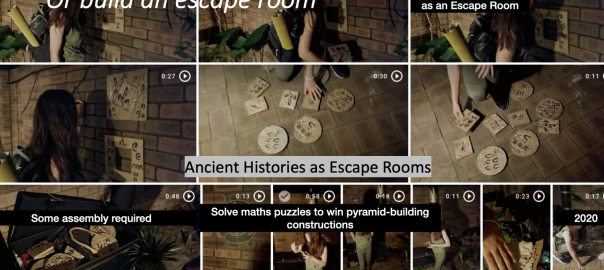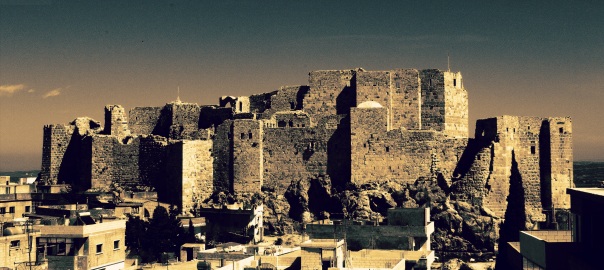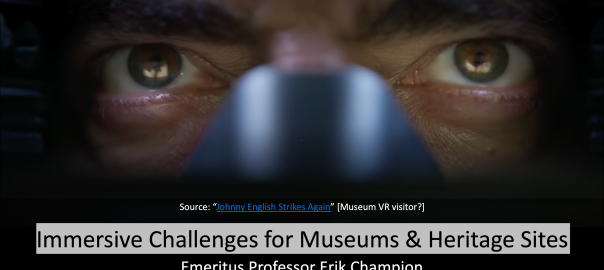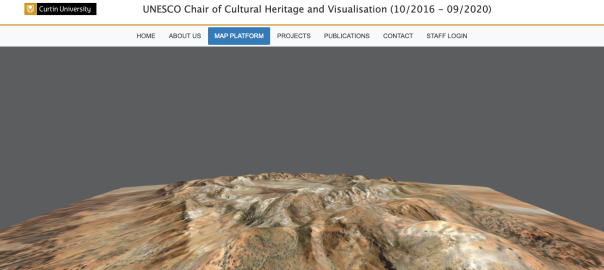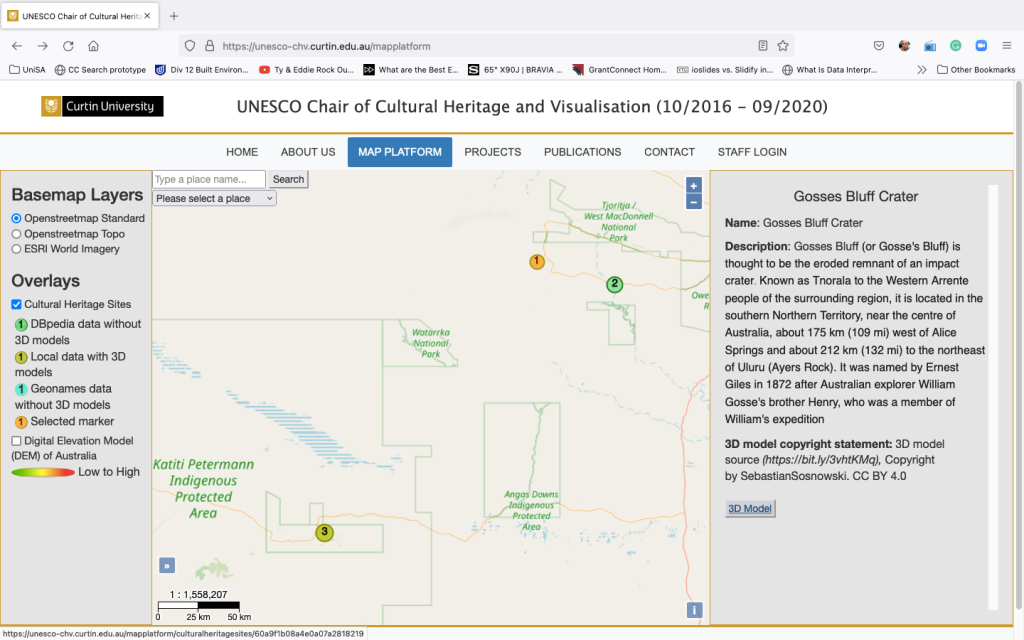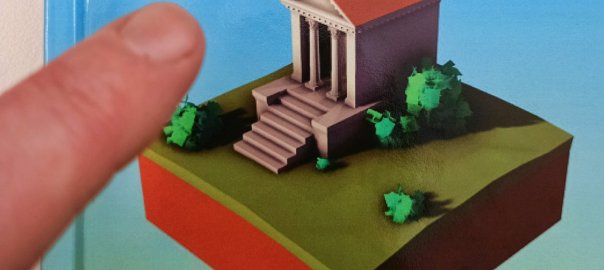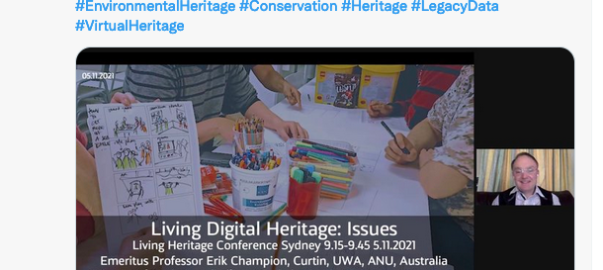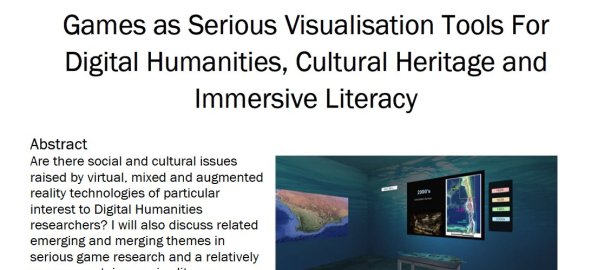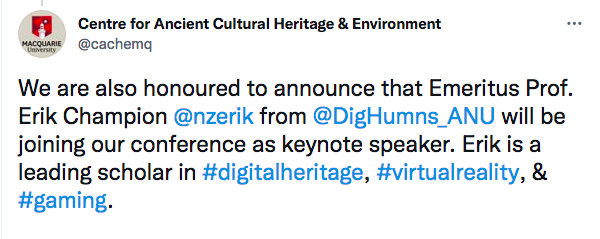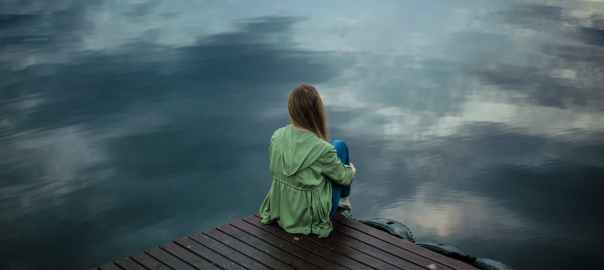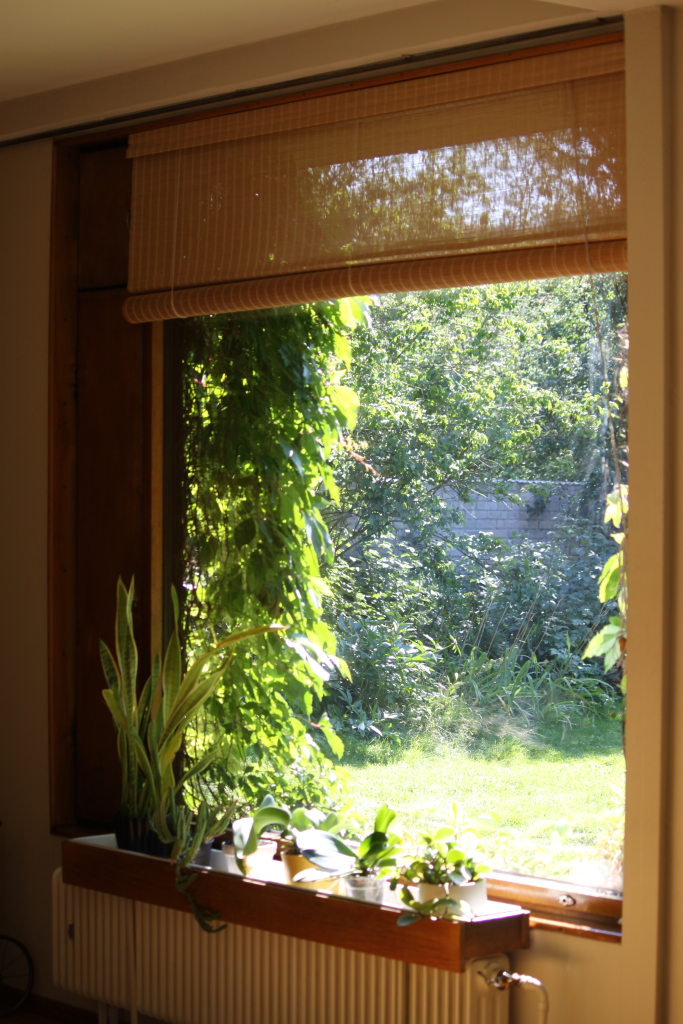Associate Professor Elaine Sullivan will propose a session on cultural presence (based on my writing in Critical Gaming) but also on wider issues of virtual heritage, for CAA2022, Oxford, 8-11 August (physically and virtually). It was approved for CAA2020 Oxford but the conference was postponed due to COVID, and she will need to reapply. However, if you are interested please contact her via her University of California-Santa Cruz Faculty page.
Details of her session S26 (specific details may be changed for 2022) are at https://2020.caaconference.org/sessions/ (N.B. I updated my definition of Cultural Presence in the journal article Culturally Significant Presence in Single-player Computer Games (JOCCH 2020).
Virtual Reality (VR), Augmented Reality (AR), and Mixed Reality (XR) technologies are increasingly incorporated into university classrooms and public education in the GLAM sector (galleries, libraries, archives, and museums). The potential to use these technologies to engage students and the public with archaeological knowledge (such as site reconstructions, artefacts, or re-imagining the activities of past peoples) is exciting, but
these forms of representation, including the use of individual headsets, tablets, and personal mobile phones, come with particular challenges.
In his book Critical Gaming (2015), (free PDF) Erik Champion argued that virtual realities should express ‘cultural presence,’ the meaning and significance of a time, place, or object to people of the past.
Hyper-reality, photogrammetry, and ever-increasing levels of ‘accuracy’ in 3D models do not inherently convey aspects of cultural significance and meaning, and many VR/AR/XR experiences fall dramatically short of the goal of expressing the importance of past places and things to their original communities.
Emphasis on technological and (especially) hardware innovation often deflects attention from critically engaging with questions of meaning-making. This panel asks those creating or intensely using Archaeology VR/AR/XR to focus NOT on software, hardware, or the latest technical innovations, but on how we as archaeologists
can better design, create, or curate experiences that inspire and educate students and the public on the cultural importance of archaeological spaces, objects or themes.
What are successful techniques to aid a visitor to better understand the original context of an object now placed in a (often far off) museum or gallery? How can university instructors incorporate the (problematically individual) headset or mobile experiences into pedagogy to provide meaningful and active student learning? How can complex data be usefully layered or curated so that multiple types of museum visitors or classes could find it informative and emotionally resonant? How can we turn these increasingly popular technologies into serious spaces of cultural learning and curiosity, moving beyond the initial ‘wow’ factor?
Format
Instead of traditional 20 minute talks, we request that participants present 8-10 minutes in depth on one VR/AR/XR experience they have designed and/or utilized in a university or GLAM setting (not a general review of multiple types of work).
We ask participants to present and explain aspects of design and interaction and their intent in that experience; or, if the content was not designed by the presenter, how content was
incorporated, curated, or enhanced for the classroom or GLAM experience. Specifically, we ask presenters to think thoughtfully and critically about how we might collectively learn to use these technologies in more informed ways, including: What types of interactions with
students or the public have shown promise, and how might we build on those successes?
What practices have not worked, and how might we learn from our failures? What particular aspects of archaeological and cultural heritage knowledge are best emphasized in the VR/AR/XR experience? What is key to re-using content created by others, including content created by non-archaeologists?

